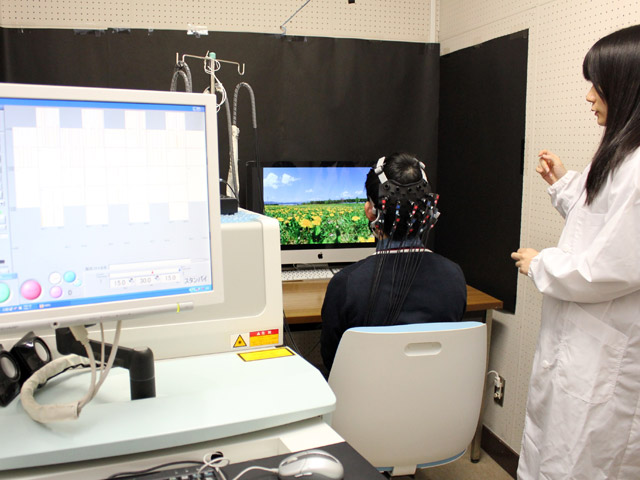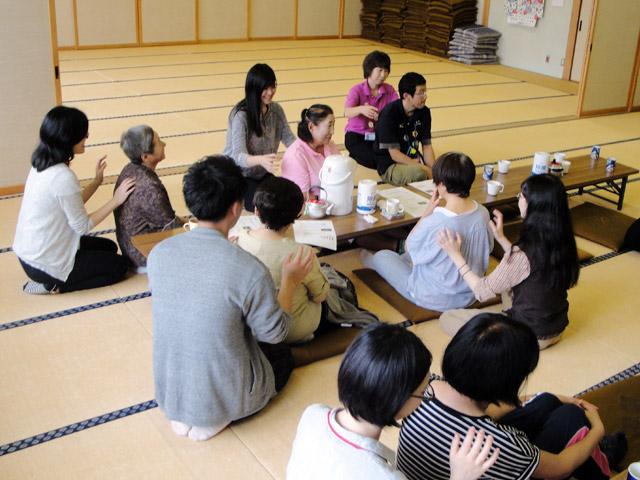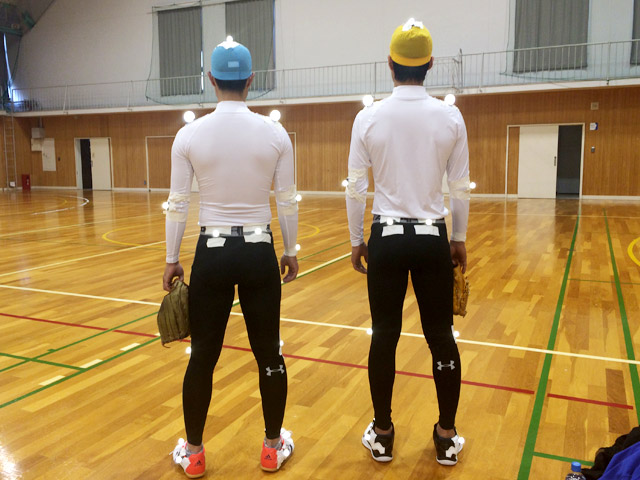Graduate Course in Human Health Sciences
Overview
This course cultivates human resources that can tackle regional revitalization by specializing in regional health promotion and sports, human resources that can specialize in tackling problems with physical and mental health and psychological stress, and leaders that can approach residents' problems from an overall perspective, based on a comprehensive understanding of the social aspects and individual aspects of local residents that live in regional social groups. The course provides three programs to achieve this. The Behavioral Science Program cultivates advanced specialists that work to solve regional problems relating to safety and security based on a comprehensive understanding of regional human activity in a wide range of fields, including cognitive psychology, social psychology/criminal psychology, information science, family sociology, regional sociology, and behavioral geography. The Clinical Psychology Program cultivates mental health care specialists, such as clinical psychologists and licensed psychologists (currently being prepared) that can play a role in regional society based on a wide range of fields including cognitive psychology and social psychology, in addition to specialized fields such as experimental clinical psychology, personality clinical psychology, development clinical psychology, and clinical psychology regional assistance theory. The Sports and Health Science Program cultivates advanced specialists that can deal with regional problems and regional revitalization via sports, based on a wide range of fields pertaining to the fundamentals of lifestyle science, nutrition science, and hygiene, such as clothing lifestyle health science and sport nutrition, in addition to specialized fields such as sport kinematics, sport sociology, sport epidemiology, and sport psychology.
The Graduate Course in Human Health Sciences contains a Human Health Sciences Seminar common course subject that enables students to clarify the positioning of their specialized field they focus on in the program within a common framework based on human health, while also enabling the students to gain an inclusive understanding of specialized knowledge in neighboring fields. The Human Health Sciences Seminar aims to provide students with an opportunity to learn how to solve the various problems in human health science by searching for new problems and approaches to problems via academic debate on the students' own specialized fields and other specialized fields, as well as knowledge gained from analyzing documents and performing experiments and surveys regarding the current status and issues of specialized fields comprised of behavioral science, clinical psychology, and sports health science.
Programs
Behavioral Science Program
 This program provides education to cultivate human resources that can widely contribute to society as an advanced specialist in the field of behavioral sciences with training in information sciences or a core leader of regional administration or education, so that they can approach the problems faced by regional society and residents from individual and/or social aspects of human behavior.
This program provides education to cultivate human resources that can widely contribute to society as an advanced specialist in the field of behavioral sciences with training in information sciences or a core leader of regional administration or education, so that they can approach the problems faced by regional society and residents from individual and/or social aspects of human behavior.
More specifically, the program cultivates human resources with a perspective that is interested in both the individual aspects and social aspects of human behavior and an understanding of how the interactions between both of these aspects affect human behavior in social situations, while also studying neighboring academic fields relating to behavioral science.
Clinical Psychology Program
 This program cultivates mental health care specialists such as clinical psychologists and licensed psychologists (currently being prepared) that can appropriately handle problems with the mental health of local residents and promote the maintenance of mental well-being, as a graduate school for clinical psychologists in Iwate Prefecture (class one designated school of the Foundation of the Japanese Certification Board for Clinical Psychologists). The program places importance on not aiming to cultivate specialists that are only proficient at specific psychotherapy and psychological assessment techniques, but aiming to cultivate comprehensive specialists that understand the social aspects as well as the individual aspects of human behavior, and can promote not only mental health but also physical health. In particular, we aim to cultivate human resources that can work as mental health care specialists in various fields such as medicine, education, and welfare, while focusing on the mental health problems of local residents, and closely cooperate with the local community as a higher education institution in a disaster area.
This program cultivates mental health care specialists such as clinical psychologists and licensed psychologists (currently being prepared) that can appropriately handle problems with the mental health of local residents and promote the maintenance of mental well-being, as a graduate school for clinical psychologists in Iwate Prefecture (class one designated school of the Foundation of the Japanese Certification Board for Clinical Psychologists). The program places importance on not aiming to cultivate specialists that are only proficient at specific psychotherapy and psychological assessment techniques, but aiming to cultivate comprehensive specialists that understand the social aspects as well as the individual aspects of human behavior, and can promote not only mental health but also physical health. In particular, we aim to cultivate human resources that can work as mental health care specialists in various fields such as medicine, education, and welfare, while focusing on the mental health problems of local residents, and closely cooperate with the local community as a higher education institution in a disaster area.
Sports and Health Science Program
 This program cultivates human resources that can accurately respond to the health problems of the regional society and residents and provide inclusive advice and coordination for regional efforts to solve issues via sports and exercise. In particular, it cultivates human resources that can work at places such as local government, sports associations, health guidance facilities, integrated regional sports clubs, NPOs, and private sports clubs with a comprehensive perspective that includes sport and exercise as well as clothing and food, in order to solve regional health problems, particularly those that gained attention during reconstruction after the Great East Japan Earthquake and Tsunami, such as resident health problems, a lack of exercise in children and the elderly, and preventive care.
This program cultivates human resources that can accurately respond to the health problems of the regional society and residents and provide inclusive advice and coordination for regional efforts to solve issues via sports and exercise. In particular, it cultivates human resources that can work at places such as local government, sports associations, health guidance facilities, integrated regional sports clubs, NPOs, and private sports clubs with a comprehensive perspective that includes sport and exercise as well as clothing and food, in order to solve regional health problems, particularly those that gained attention during reconstruction after the Great East Japan Earthquake and Tsunami, such as resident health problems, a lack of exercise in children and the elderly, and preventive care.
In order to achieve this, the program provides education that enables students to deepen their understanding regarding sport and exercise from the view of hygiene, epidemiology, psychology, sociology, coaching, and training science, gain specialized knowledge and ideas about lifestyle health science (clothing environment) and nutrition, and comprehensively utilize these abilities to accurately deal with the various problems relating to health.